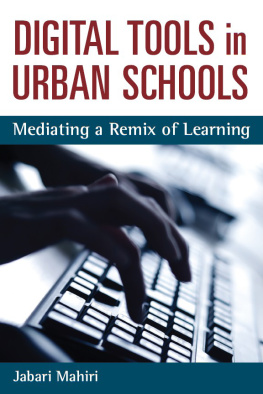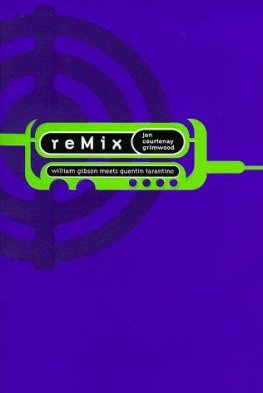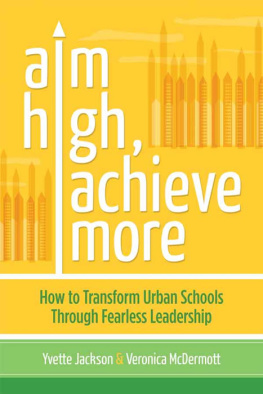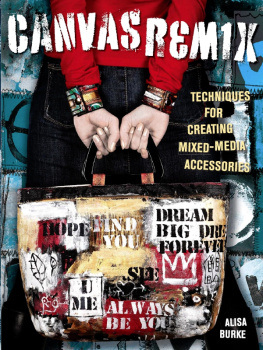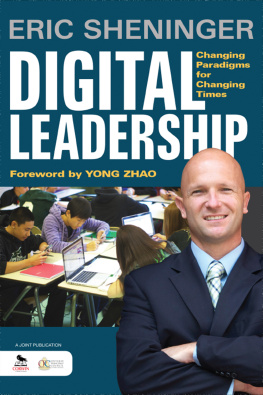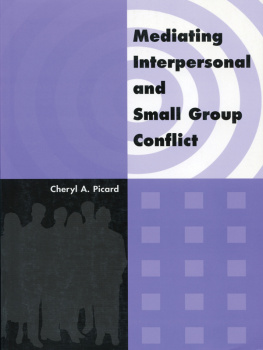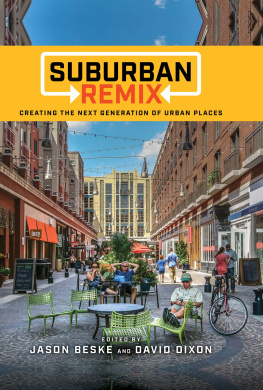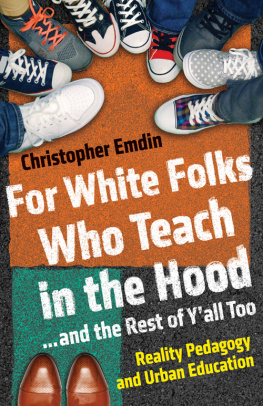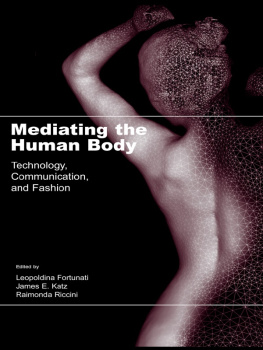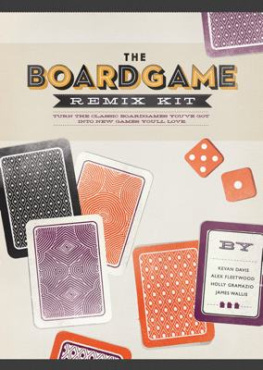Mahiri - Digital Tools in Urban Schools: Mediating a Remix of Learning
Here you can read online Mahiri - Digital Tools in Urban Schools: Mediating a Remix of Learning full text of the book (entire story) in english for free. Download pdf and epub, get meaning, cover and reviews about this ebook. year: 2018, publisher: The University of Michigan Press, genre: Romance novel. Description of the work, (preface) as well as reviews are available. Best literature library LitArk.com created for fans of good reading and offers a wide selection of genres:
Romance novel
Science fiction
Adventure
Detective
Science
History
Home and family
Prose
Art
Politics
Computer
Non-fiction
Religion
Business
Children
Humor
Choose a favorite category and find really read worthwhile books. Enjoy immersion in the world of imagination, feel the emotions of the characters or learn something new for yourself, make an fascinating discovery.
- Book:Digital Tools in Urban Schools: Mediating a Remix of Learning
- Author:
- Publisher:The University of Michigan Press
- Genre:
- Year:2018
- Rating:4 / 5
- Favourites:Add to favourites
- Your mark:
- 80
- 1
- 2
- 3
- 4
- 5
Digital Tools in Urban Schools: Mediating a Remix of Learning: summary, description and annotation
We offer to read an annotation, description, summary or preface (depends on what the author of the book "Digital Tools in Urban Schools: Mediating a Remix of Learning" wrote himself). If you haven't found the necessary information about the book — write in the comments, we will try to find it.
Mahiri: author's other books
Who wrote Digital Tools in Urban Schools: Mediating a Remix of Learning? Find out the surname, the name of the author of the book and a list of all author's works by series.
Digital Tools in Urban Schools: Mediating a Remix of Learning — read online for free the complete book (whole text) full work
Below is the text of the book, divided by pages. System saving the place of the last page read, allows you to conveniently read the book "Digital Tools in Urban Schools: Mediating a Remix of Learning" online for free, without having to search again every time where you left off. Put a bookmark, and you can go to the page where you finished reading at any time.
Font size:
Interval:
Bookmark:

Ellen Seiter and Mimi Ito, Series Editors
This book series showcases the best ethnographic research today on engagement with digital and convergent media. Taking up in-depth portraits of different aspects of living and growing up in a media-saturated era, the series takes an innovative approach to the genre of the ethnographic monograph. Through detailed case studies, the books explore practices at the forefront of media change through vivid description analyzed in relation to social, cultural, and historical context. New media practice is embedded in the routines, rituals, and institutionsboth public and domesticof everyday life. The books portray both average and exceptional practices but all grounded in a descriptive frame that renders even exotic practices understandable. Rather than taking media content or technology as determining, the books focus on the productive dimensions of everyday media practice, particularly of children and youth. The emphasis is on how specific communities make meanings in their engagement with convergent media in the context of everyday life, focusing on how media is a site of agency rather than passivity. This ethnographic approach means that the subject matter is accessible and engaging for a curious layperson, as well as providing rich empirical material for an interdisciplinary scholarly community examining new media.
Ellen Seiter is Professor of Critical Studies and Stephen K. Nenno Chair in Television Studies, School of Cinematic Arts, University of Southern California. Her many publications include The Internet Playground: Children's Access, Entertainment, and Mis-Education; Television and New Media Audiences; and Sold Separately: Children and Parents in Consumer Culture.
Mimi Ito is Professor in Residence and John D. and Catherine T. MacArthur Foundation Chair in Digital Media and Learning, Department of Anthropology and Department of Informatics, University of California, Irvine, and Research Director of the Digital Media and Learning Hub, University of California Humanities Research Institute. She has published widely on new media and youth and led a recently completed three-year project, Kids' Informal Learning with Digital Media, an ethnographic study of digital youth funded by the MacArthur Foundation.
TITLES IN THE SERIES
Skate Life: Re-Imagining White Masculinity by Emily Chivers Yochim
My Life as a Night Elf Priest: An Anthropological Account of World of Warcraft by Bonnie A. Nardi
Home Truths? Video Production and Domestic Life by David Buckingham, Rebekah Willett, and Maria Pini
Digital Tools in Urban Schools: Mediating a Remix of Learning by Jabari Mahiri
DIGITALCULTUREBOOKS, an imprint of the University of Michigan Press, is dedicated to publishing work in new media studies and the emerging field of digital humanities
Mediating a Remix of Learning
Jabari Mahiri
THE UNIVERSITY OF MICHIGAN PRESS
ANN ARBOR
Copyright by Jabari Mahiri 2011
Some rights reserved

This work is licensed under the Creative Commons Attribution Noncommercial-No Derivative Works 3.0 United States License.
To view a copy of this license, visit http://creativecommons.org/licenses/by-nc-nd/3.0/ or send a letter to Creative Commons, 171 Second Street, Suite 300, San Francisco, California, 94105, USA.
Published in the United States of America by The University of Michigan Press
Manufactured in the United States of America Printed on acid-free paper
Printed on acid-free paper
2014 2013 2012 2011 4 3 2 1
A CIP catalog record for this book is available from the British Library.
Library of Congress Cataloging-in-Publication Data
Mahiri, Jabari.
Digital tools in urban schools : mediating a remix of learning/Jabari Mahiri.
p. cm.(Technologies of the imagination: new media in everyday life)
Includes bibliographical references and index.
ISBN 978-0-472-07153-1 (cloth : alk. paper) ISBN 978-0-472-05153-3 (pbk. : alk. paper) ISBN 978-0-472-02760-6
1. Urban youthEducationSocial aspectsUnited States. 2. Critical pedagogyUnited States. 3. Digital communicationsSocial aspectsUnited States. I. Title.
LC5131.M34 2011
371.009173'2dc22 2011007219
Cover image: Ilja Mak/Shutterstock
To Helio J. Mahiri the First
the First
This book would not have been possible without the vision, passion, and commitment of the principal, teachers, staff, and parents at the high school where this research took place. These inspiring educators and cultural workers are harbingers of the change we need. I also thank their students, whose energy and activities were central to this work. I additionally thank the participants at the University of California, Berkeley, scholar-activists who contributed important perspectives and skills to the TEACH Project: Rick Ayers, Kelly Buchanan, Victor Diaz, Heidi Ku'ulei Hata, Lanette Jimerson, Alexis Martin, Jose Gutierrez, Sonia Martin Poole, Gerald Reyes, Allison Scott, Hillary Scott, Pierre Tchetgen, Sneha Veeragoudar Harrell, and Dawn W. Ferreira. I thank Mersia Gabri El, Casey Hunt, Cherise Martinez-McBride, Roger Smith, Aaron Ward, Joy Lee, Eda Levenson, and Erin Murphy-Graham for their important contributions, as well as Ayesha Walker, Lissa Soep, and Jacinda Abcarian of Youth Radio. Sharon Merritt, Maryanne Berry, and Grace Kim thanks for our explorations in Second Life. I thank Yvette Jackson, Eric Cooper, LaVerne Flowers, and the other members of the National Urban Alliance who influenced my thinking on working with educators. Also, I thank Mimi Ito, Barrie Thorne, Michael Carter, and the other participants of the Digital Youth Project who provided intellectual community and critical resources for this work. I especially thank members of my family for so much goodness: Kobie Mahiri; Jelani, Nina, and Helio Mahiri; Ayana and Nia Crawford; and Ajamu, Ahlia, and Soleil Kitwana. A special thanks to Miyako Tsujimotofor everything. Finally, I thank Fani Garagouni, who wonderfully facilitated the research and writing of this book.
The digital age and the age of hip-hop emerged collaterally during the last 35 years. Increasingly, young people in the United States and globally use screen-based, digital technologies to source and transmit words, images, video, and sounds as they engage in meaning making, identity connections, and social networking. They come to school with experiences, interests, affinities, and skills uniquely enabled by new media, and engaging them in classrooms requires new learning of teachers.
This book reveals significant ways that high school teachers extended their professional learning to revitalize learning in their classrooms in the complex educational context of an urban, public continuation high school in northern California. They did this through participation in a novel professional development project that was part of a university/public school research collaboration called TEACH (Technology, Equity, And Culture in High-performing schools). In this project, teachers were supported and guided in developing perspectives and skills needed to take greater advantage of new media and new information sources in conjunction with relevant connections to youth experiences and interests. This work draws on extensive qualitative data to document, describe, and analyze how the learning of both teachers and students was dramatically transformed as they worked to incorporate an array of new media in their classrooms.
Font size:
Interval:
Bookmark:
Similar books «Digital Tools in Urban Schools: Mediating a Remix of Learning»
Look at similar books to Digital Tools in Urban Schools: Mediating a Remix of Learning. We have selected literature similar in name and meaning in the hope of providing readers with more options to find new, interesting, not yet read works.
Discussion, reviews of the book Digital Tools in Urban Schools: Mediating a Remix of Learning and just readers' own opinions. Leave your comments, write what you think about the work, its meaning or the main characters. Specify what exactly you liked and what you didn't like, and why you think so.

